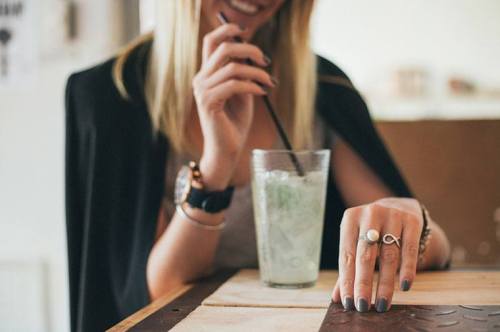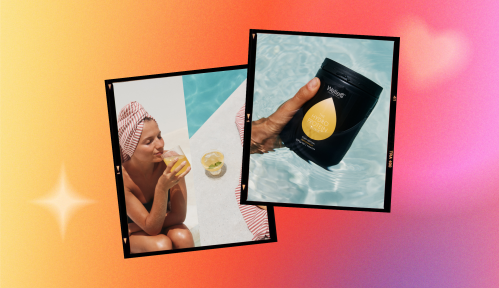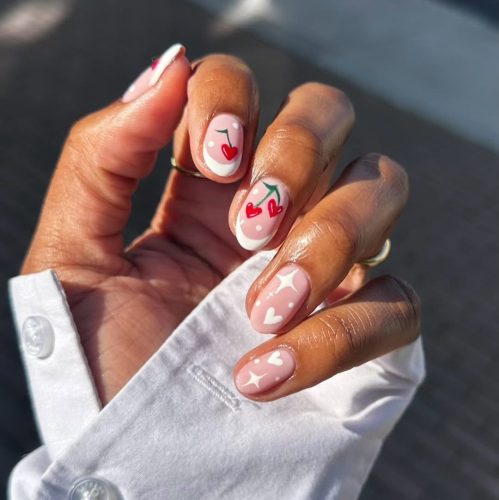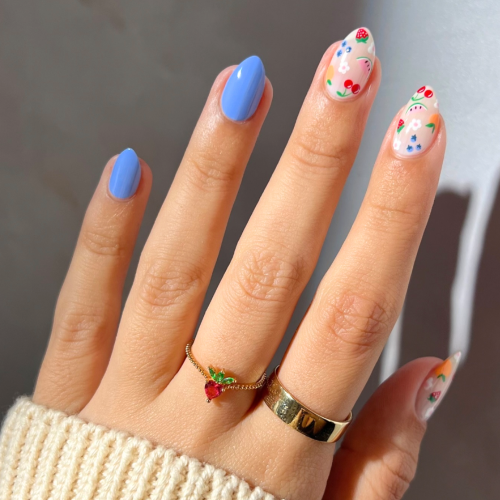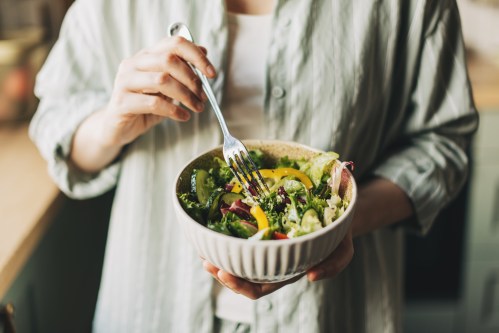Our editors independently select these products. Making a purchase through our links may earn Well+Good a commission
The kombucha trend is huge and only growing—you heard it here first: Speciality craft-brewed varieties are set to pop off in 2018. And with that, people are looking for new ways and reasons to enjoy it. Enter: Kombucha with extra alcohol.
Regular kombucha already has some naturally occurring alcohol, between 0.5 to 2 percent depending on the type you’re drinking. (You may remember that NFL player Michael Floyd claimed it was his fondness for kombucha that caused him to fail a breathalyzer test back in June; for the record, Sports Illustrated doubts this is possible.) So, it makes sense that people are starting to buzz about kombucha that can, well, actually get you buzzed.
The prospect of this spiked wellness drink becoming a go-to social lubricant is an interesting concept, particularly for the healthy-minded. “If you’re going to drink alcohol, you might as well pair it with probiotics, organic acids, enzymes, vitamins, and minerals,” says Adam Hiner, co-founder of the alcoholic kombucha brand Boochcraft (it has 7 percent ABV!), which can be found at Whole Foods.
Garrett Bredenkamp, CEO of Kombrewcha (3.2 percent ABV), echoes Hiner’s sentiment. “We wanted to deliver an option for social drinking people can feel good about,” he says.
But how good can you feel about it, really? Even without the alcohol, holistic nutritionist Kelly LeVeque says, most bottles of kombucha can have around 14 grams of carbohydrates and zero grams of fiber, “meaning kombucha turns to blood glucose and needs to be managed by the hormone insulin. It therefore sends your body on a blood-sugar roller coaster,” she says.
“There are some benefits to drinking [regular] kombucha for gut and immune health,” says Brooke Alpert, RD and author of The Diet Detox. “But, that said, it’s still a caloric drink, with 100 calories per bottle—which is the same, not less, than a light beer.” Kombrewcha and Boochcraft have 110 and 150 (and up) calories per serving, respectively.
Two things the booch does have going for it: It’s gluten-free and made with organic ingredients.
Probiotics are delicate, so it’s hard to ensure viability when exposed to high levels of alcohol,” says Roshini Raj, MD.
When it comes to those gut-friendly probiotics that make regular kombucha such a wellness golden child, however, things get complicated. “Probiotics are delicate, so it’s hard to ensure viability when exposed to high levels of alcohol,” explains Roshini Raj, MD, a gastroenterologist and associate professor at NYU School of Medicine.
Bredenkamp concedes this is the case: “Probiotics don’t do well at our high alcohol level,” he says.
Citing tests Boochcraft’s staff microbiologist performs on the product’s flora regularly, Hiner dissents. “The probiotics are actually very happy in an alcoholic environment of up to about 15 percent alcohol,” he says. “Our alcoholic kombucha has just as much probiotics as regular kombucha.”
Even if buzzy kombucha isn’t readily available to you (right now, anyway), the regular stuff is gaining ground behind the bar as a mixer (like in this yummy whiskey cocktail with kombucha and apple cider vinegar). “If you’re going to have a cocktail and want to limit sugar, switching from a soda to a kombucha is a healthier decision,” says Matt Thomas, founder of Brew Dr. Kombucha and Thomas & Sons Distillery in Oregon.
To put that in perspective: a 7.5-ounce can of Coca Cola contains a whopping 25 grams of sugar, while a 7-ounce glass of orange juice clocks in at around 19 grams. Brew Dr.‘s Citrus Hops variety, meanwhile, contains just 5 grams of sugar per 7 ounces. Seltzer water like LaCroix, however, has no sugar.
The bottom line: When used as a mixer, kombucha is lower in sugar than many commonly used mainstream alternatives. And if you’re going to hit up happy hour, why not at least attempt to benefit from gut-friendly flora while you’re at it?
Now that you know to BYOK, get skilled on kombucha-laced cocktails you can DIY. Plus, get intel on what’s next for the go-to wellness elixir (hint: adaptogenic twists and even ice-cream).
Sign Up for Our Daily Newsletter
Get all the latest in wellness, trends, food, fitness, beauty, and more delivered right to your inbox.
Got it, you've been added to our email list.
